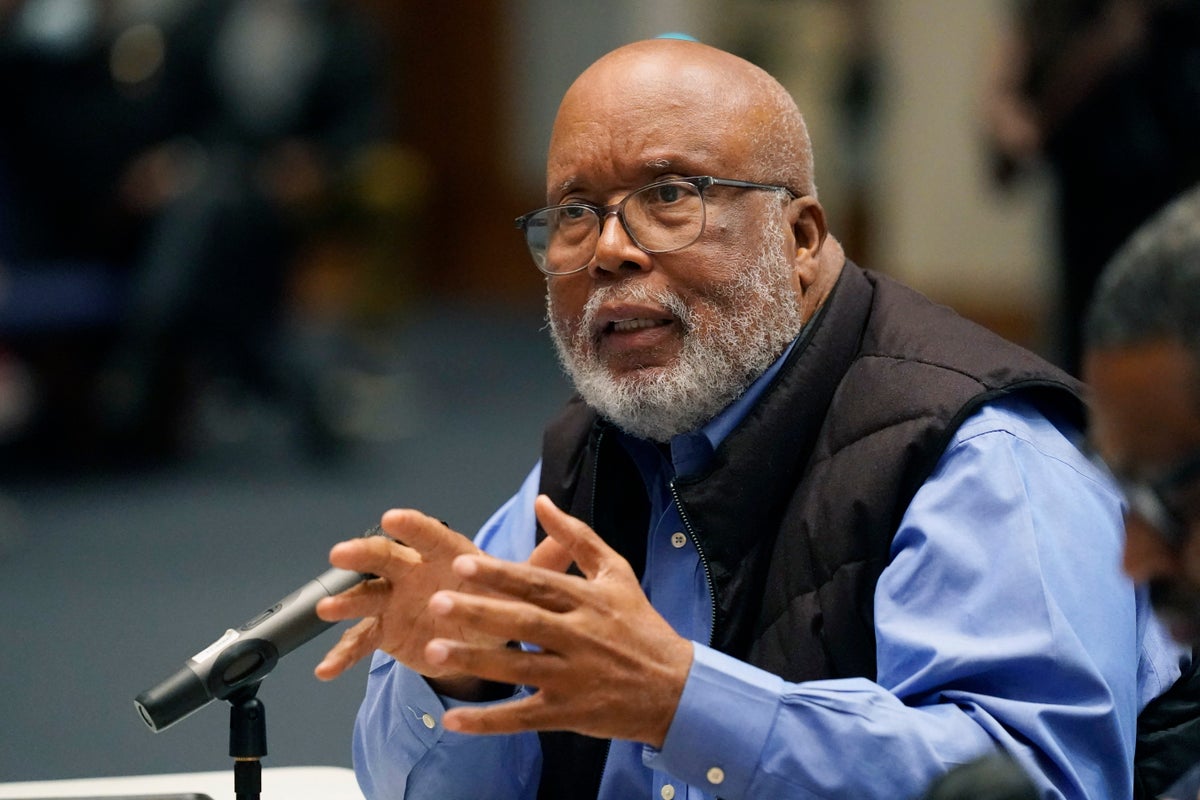
Federal investigations into public spending on the failing water system in Mississippi's majority-Black capital city are a test of President Joe Biden's commitment to racial equity, one of his congressional allies told hundreds of people at a town hall meeting hosted by the NAACP.
“President Biden has made a fundamental policy in his administration to talk about equity. And this is an issue of equity and fair treatment about the citizens of Jackson," Democratic Rep. Bennie Thompson said Monday night at Jackson's New Hope Baptist Church — the same spacious sanctuary where Biden spoke during the 2020 campaign.
The Environmental Protection Agency announced Thursday that it is investigating whether Mississippi state agencies have discriminated against Jackson by refusing to fund water system improvements in the city of 150,000, where more than 80% of residents are Black and about a quarter of the population lives in poverty.
Thompson said the EPA civil investigation is expected to take about four months. The federal agency could withhold money from the state if it finds wrongdoing — potentially millions of dollars. If the state agencies don’t cooperate with the investigation, the EPA could refer the case to the Department of Justice.
Thompson's congressional district includes most of Jackson. He is chairman of the House Homeland Security Committee — one of two congressional committees that also are investigating how Republican-led Mississippi is spending federal money for water system improvements, and whether some of the money will go to Jackson.
Biden spoke at Jackson's New Hope Baptist Church during a worship service in March 2020 as he was seeking the Democratic nomination for president. Biden was fresh off a win in South Carolina's Democratic primary, where Black voters gave him a crucial boost — and Thompson introduced the former vice president at New Hope as the “Comeback Kid.”
“If I’m the Comeback Kid, there’s only one reason I’ve come back — the African-American community all around the country," Biden told the mostly Black congregation in Mississippi. He also pledged to look out for people who had been marginalized, isolated and oppressed.
Speaking of Biden on Monday, Thompson said: “I’m going to continue to make him a man of his word. He sat right here on the front pew and asked people to support him, and a lot of us did. And so now, it’s a matter of making sure that promises made are promises kept.”
Jackson has struggled with water system problems for years, and most of the city lost running water for several days in late August and early September after torrential rainfall exacerbated problems at the main water treatment facility. Republican Mississippi Gov. Tate Reeves declared an emergency Aug. 29, and the state health department and the Mississippi Emergency Management Agency have been overseeing operations and repairs at the facility since then.
By the time Reeves issued the emergency order, Jackson residents had already been told for a month to boil their water to kill possible contaminants. Volunteers and the National Guard had distributed millions of bottles of drinking water. Although the boil-water notice was lifted in mid-September, many residents remain skeptical about water safety.
In a federal complaint Sept. 27, the NAACP said Mississippi officials “all but assured” a drinking water calamity by depriving Jackson of badly needed funds to upgrade its infrastructure. The organization asked the EPA to investigate the state’s alleged pattern of steering money to majority-white communities with less need.
NAACP national president Derrick Johnson, who lives in Jackson with his family, said Monday that the state needs to direct federal money toward “clean, safe drinking water for every citizen of this city.” He also said the system needs to remain in city control and not be turned over to private contractors or a regional governing board.
“When you consider how water systems are funded in this state, it's from federal funds,” Johnson said. “And in 25 years of the state of Mississippi receiving federal funds for water, the city of Jackson only received funds three of those 25 years. That's an inequity that this administration said they were going to address.”
The AP reported in September that years before Reeves became governor, he touted his own track record of fiscal conservatism by citing his opposition to spending state money for Jackson’s crumbling water and sewer infrastructure. The EPA is not investigating Reeves.







